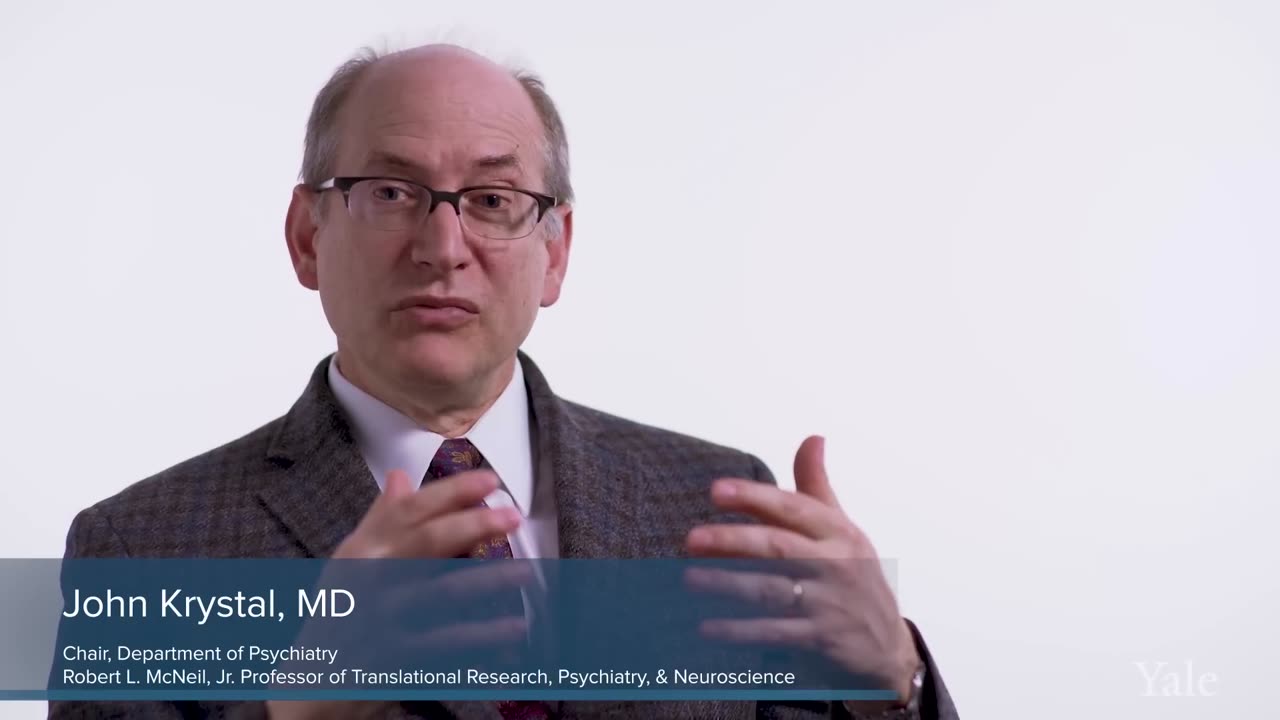Premium Only Content

How Depression Affects The Brain - Yale Medicine Explains
For many people, depression turns out to be one of the most disabling illnesses that we have in society. Despite the treatments that we have available, many people are not responding that well. It's a disorder that can be very disabling in society. It's also a disorder that has medical consequences. By understand the neurobiology of depression we hope to be able more to find the right treatment for the patient suffering from this disease. The current standard of care for the treatment of depression is based on what we call the monoamine deficiency hypothesis. Essentially, presuming that one of three neurotransmitters in the brain is deficient or underactive. But the reality is, there are more than 100 neurotransmitters in the brain. And billions of connections between neurons. So we know that that's a limited hypothesis. Neurotransmitters can be thought of as the chemical messengers within the brain, it's what helps one cell in the brain communicate with another, to pass that message along from one brain region to another. For decades, we thought that the primary pathology, the primary cause of depression was some abnormality in these neurotransmitters, specifically serotonin or norepinephrine. However, norepinephrine and serotonin did not seem to be able to account for this cause, or to cause the symptoms of depression in people who had major depression. Instead, the chemical messengers between the nerve cells in the higher centers of the brain, which include glutamate and GABA, were possibilities as alternative causes for the symptoms of depression. When you're exposed to severe and chronic stress like people experience when theyhave depression, you lose some of the connections between the nerve cells. The communication in these circuits becomes inefficient and noisy, we think that the loss of these synaptic connections contributes to the biology of depression. There are clear differences between a healthy brain and a depressed brain. And the exciting thing is, when you treat that depression effectively, the brain goes back to looking like a healthy brain, both at the cellular level and at a global scale. It's critical to understand the neurobiology of depression and how the brain plays a role in that for two main reasons. One, it helps us understand how the disease develops and progresses, and we can start to target treatments based on that. We are in a new era of psychiatry. This is a paradigm shift, away from a model of monoaminergic deficiency to a fuller understanding of the brain as a complex neurochemical organ. All of the research is driven by the imperative to alleviate human suffering. Depression is one of the most substantial contributors to human suffering. The opportunity to make even a tiny dent in that is an incredible opportunity.
-
 LIVE
LIVE
IcyFPS
2 hours agoFathers Day Splitgate BR w/ Arrowthorn! Lets go!!
169 watching -
 16:54
16:54
Forrest Galante
10 hours ago6 Animals You'll Be Glad Are Extinct
52K53 -
 LIVE
LIVE
HaywireMD
2 hours agoSubdaze Sermon - FATHERS DAY SPECIAL - New Dual PC Setup - Onyx Ranked Arena MM / VIEWERS LIKE YOU
85 watching -
 LIVE
LIVE
Lofi Girl
2 years agolofi hip hop radio 📚 - beats to relax/study to
679 watching -
 LIVE
LIVE
MSFT__kiLRoy
2 hours agoBorderlands 3 - Atlas Zane (Pt. 5) \\ Tracking Down Troy
95 watching -
 36:15
36:15
Athlete & Artist Show
1 day ago $2.62 earnedOilers In 6?, Where Will Marner Go?, Who Do The Hawks Draft?
44.5K2 -
 LIVE
LIVE
Rotella Games
5 hours agoRumble Island Ambassador | Day 8
77 watching -
 LIVE
LIVE
Sm0k3m
2 hours agoHappy Father's Day
37 watching -
 2:31:16
2:31:16
Sgt Wilky Plays
6 hours agoFathers day coffee and Karting
41K4 -
 8:07
8:07
Freedom Frontline
1 day agoTim Dillon SLAMS Woke Elites – This Is Brilliant
41.8K7